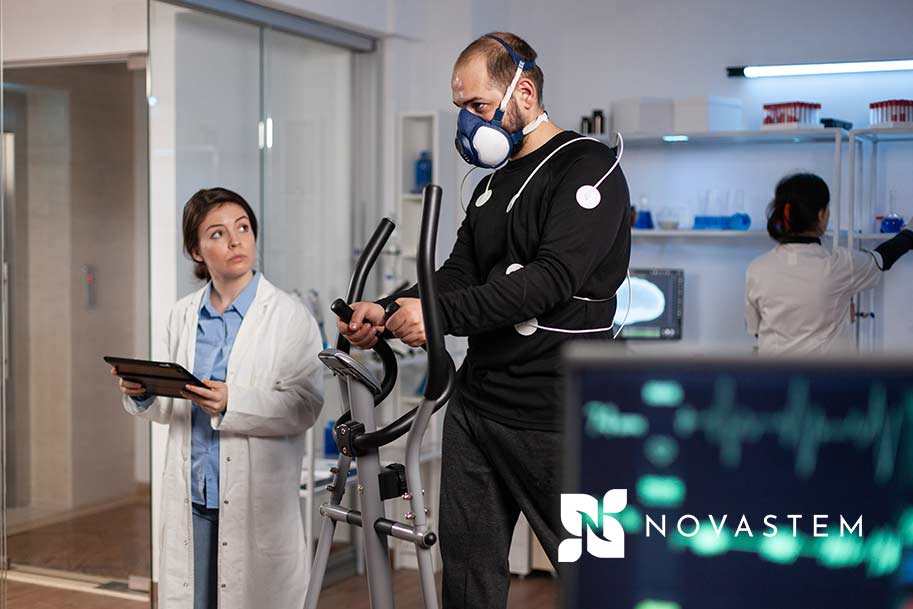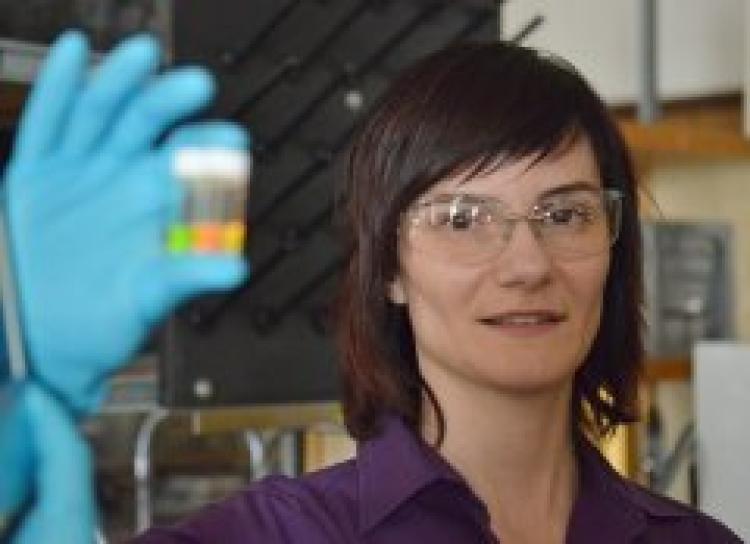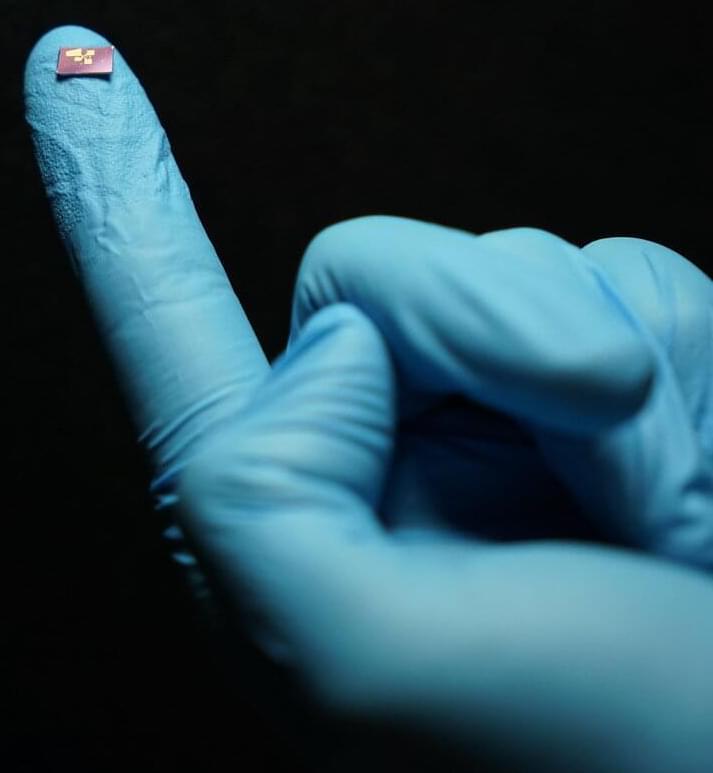Biohacking is a relatively new practice that focuses on studying and learning about living beings and looking for ways to improve their function.



A group of scientists led by the U.S. Department of Energy’s National Renewable Energy Laboratory (NREL) in Golden and involving the University of Colorado Boulder has developed a new, eco-friendly method to produce ammonia, the main ingredient of fertilizer, using light.
The researchers discovered that light energy can be used to change dinitrogen (N2), a molecule made of two nitrogen atoms, to ammonia (NH3), a compound of nitrogen and hydrogen. The researchers hope the newly discovered, light-driven chemical process that creates ammonia can lead to future developments that will enhance global agricultural practices while decreasing the dependence of farmers on fossil fuels.
Traditionally there have been two main ways to transform nitrogen, the most common gas in Earth’s atmosphere, for use by living organisms. One is a biological process that occurs when atmospheric nitrogen is “fixed” by bacteria found in the roots of some plants like legumes and then converted to ammonia by an enzyme called nitrogenase.
“By now it has become a common futurist prediction and science fiction plot device that intelligent and sentient life forms can be created which are not biochemical in nature and are thus fundamentally different from all currently known life,” distinguished Princeton astrophysicist Edwin Turner wrote in an email to The Daily Galaxy. “Whether or not this would actually be possible,” he explains, “depends on the nature and origin of consciousness, a topic about which we have little more than entertaining whistling-in-the-dark guesses at this point and no clear path toward obtaining any better understanding of this deep mystery.”
Aliens Shaped by Natural Selection
In a landmark 2017 study published in the International Journal of Astrobiology scientists from the University of Oxford showed that aliens are potentially shaped by the same processes and mechanisms that shaped humans, such as natural selection and are like us, evolving to be fitter and stronger over time.
❤️ Check out Runway and try it for free here: https://runwayml.com/papers/
Use the code TWOMINUTE at checkout to get 10% off!
📝 The paper “High Definition Video Generation with Diffusion Models” is available here:
https://imagen.research.google/video/
📝 My paper “The flow from simulation to reality” with clickable citations is available here for free:
https://rdcu.be/cWPfD
🙏 We would like to thank our generous Patreon supporters who make Two Minute Papers possible:
Aleksandr Mashrabov, Alex Balfanz, Alex Haro, Andrew Melnychuk, Benji Rabhan, Bryan Learn, B Shang, Christian Ahlin, Eric Martel, Geronimo Moralez, Gordon Child, Jace O’Brien, Jack Lukic, John Le, Jonas, Jonathan, Kenneth Davis, Klaus Busse, Kyle Davis, Lorin Atzberger, Lukas Biewald, Luke Dominique Warner, Matthew Allen Fisher, Matthew Valle, Michael Albrecht, Michael Tedder, Nevin Spoljaric, Nikhil Velpanur, Owen Campbell-Moore, Owen Skarpness, Rajarshi Nigam, Ramsey Elbasheer, Steef, Taras Bobrovytsky, Ted Johnson, Thomas Krcmar, Timothy Sum Hon Mun, Torsten Reil, Tybie Fitzhugh, Ueli Gallizzi.
If you wish to appear here or pick up other perks, click here: https://www.patreon.com/TwoMinutePapers.
Thumbnail background design: Felícia Zsolnai-Fehér — http://felicia.hu.
Chapters:

Scientists including an Oregon State University materials researcher have developed a better tool to measure light, contributing to a field known as optical spectrometry in a way that could improve everything from smartphone cameras to environmental monitoring.
The study, published today in Science, was led by Finland’s Aalto University and resulted in a powerful, ultra-tiny spectrometer that fits on a microchip and is operated using artificial intelligence.
The research involved a comparatively new class of super-thin materials known as two-dimensional semiconductors, and the upshot is a proof of concept for a spectrometer that could be readily incorporated into a variety of technologies—including quality inspection platforms, security sensors, biomedical analyzers and space telescopes.

Strange metals, or non-Fermi liquids, are distinct states of matter that have been observed in different quantum materials, including cuprate superconductors. These states are characterized by unusual conductive properties, such as a resistivity that is linearly associated with temperature (T-linear).
In the strange metal phase of matter, electrons undergo what is known as “Planckian dissipation,” a high scattering rate that linearly increases as the temperature rises. This T-linear, strong electron scattering is anomalous for metals, which typically present a quadratic temperature dependence (T2), as predicted by the standard theory of metals.
Researchers at Université de Sherbrooke in Canada, Laboratoire National des Champs Magnétiques Intenses in France, and other institutes worldwide have recently carried out a study exploring the possibility that the resistivity of strange metals is not only associated with temperature, but also with an applied magnetic field. This magnetic field linearity had been previously observed in some cuprates and pnictides, with some physicists suggesting that it could also be linked to Planckian dissipation.

It’s known that water ice exists below the lunar regolith (broken rock and dust), but scientists don’t yet understand whether surface ice frost covers the floors inside these cold craters. To find out, NASA is sending Lunar Flashlight, a small satellite (or SmallSat) no larger than a briefcase. Swooping low over the lunar South Pole, it will use lasers to shed light on these dark craters—much like a prospector looking for hidden treasure by shining a flashlight into a cave. The mission will launch aboard a SpaceX Falcon 9 rocket in mid-November.
“This launch will put the satellite on a trajectory that will take about three months to reach its science orbit,” said John Baker, the mission’s project manager at NASA’s Jet Propulsion Laboratory in Southern California. “Then Lunar Flashlight will try to find water ice on the surface of the Moon in places that nobody else has been able to look.”


A ring-shaped waveguide with a particular pattern of notches can force a light wave to make two round trips before completing an integer number of wave cycles.
Light can travel along a closed path inside a ring of glass or similar material, reflecting repeatedly from the interior surface. Although such closed-loop waves generally have integer values of angular momentum, researchers using a small gear-shaped ring have now demonstrated an ability to generate similar waves with unusual fractional values of angular momentum [1]. As in a Möbius strip, the waves must make two round trips to return to their initial configuration. The ability to tune the angular momentum in this way could give researchers more precise control of light in advanced devices such as single-photon emitters.
Physicists refer to the closed-loop waves as whispering gallery modes, named after an acoustic effect in round rooms, where sounds reflect multiple times off the walls. Ordinarily, a wave of this kind moves around a single closed loop before retracing its earlier path. The phase of the electric field associated with the wave front must go through an integer number M of cycles in making one loop. Technically, this condition also implies that the photons associated with the wave will carry an integer number M units of angular momentum.

Five malicious dropper Android apps with over 130,000 cumulative installations have been discovered on the Google Play Store distributing banking trojans like SharkBot and Vultur, which are capable of stealing financial data and performing on-device fraud.
“These droppers continue the unstopping evolution of malicious apps sneaking to the official store,” Dutch mobile security firm ThreatFabric told The Hacker News in a statement.
“This evolution includes following newly introduced policies and masquerading as file managers and overcoming limitations by side-loading the malicious payload through the web browser.”